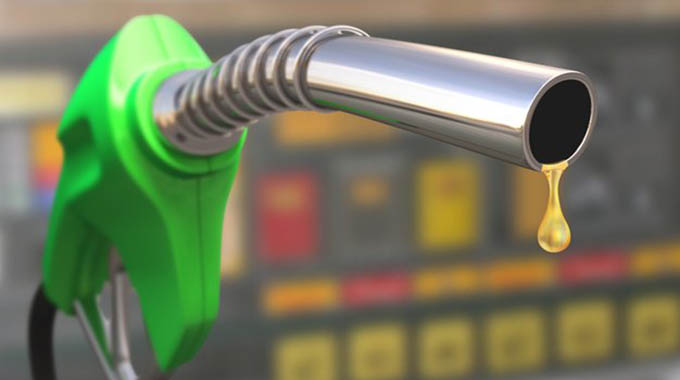Source: Fuel prices adjusted to ruling exchange rate | The Herald

Herald Reporter
The overnight doubling in fuel prices is a direct result of the setting of a new official exchange rate reflecting the actual market value of a US dollar, bringing Zimbabwean fuel prices into line with regional norms and ending the quasi-fiscal subsidy from the Reserve Bank of Zimbabwe (RBZ) using an obsolete exchange rate.
Energy regulator, Zera uses a simple formula to calculate the final retail price of petrol and diesel, although there are 18 items in the list that produces the diesel price and 20 items in the list generating the petrol price.
The most critical factors that generate this final price are the landed cost in US dollars, the exchange rate and the taxes, with the costs incurred getting it from Msasa to car being the lowest batch. The landed cost and exchange rate generate around 40 percent of the pump price, with taxes adding around the same for petrol but less for lower-taxed diesel.
The final block, of a little over 20 percent of pump price, basically gets the fuel from Msasa into your tank.
The price formula starts with the actual cost of diesel and petrol when it is landed in Zimbabwe. This is 40,36USc for a litre of diesel and 37,76USc for a litre of petrol. That price covers the crude, refining costs, shipping costs across the Indian Ocean and the Beira port charges.
Two more US dollar charges have to be paid, the 7.89 USc a litre pipeline charges for both fuels, and the 2.5 USc a litre financing charges. So the landed cost in Zimbabwe is 50.75USc a litre for diesel and 48.15USc a litre for petrol.
Both fuels were landed at around 60 USc a litre at the beginning of the year. But the crash in crude oil prices in recent months, as demand dropped significantly, has knocked around 10USc a litre off the landed cost. Crude costs are a small part of this landed price, as the refining, shipping and pipeline charges are fixed.
But once in Zimbabwe the price of the fuel switches to Zimbabwe dollars, using the official exchange rate. Zera used the interbank rate when this existed, but from yesterday uses the ruling rate, the weighted average generated by the auctions as this is the real market rate. So diesel is now Z$29,109 a litre and petrol is Z$27,62 a litre.
Now come the extra charges, most of which are percentages rather than fixed charges. First come the taxes, all approved by Parliament. Duty is the big tax, $14.34 a litre on diesel and $17.207 a litre for petrol.
Government, with the approval of Parliament, reckons that most diesel is used by the productive sectors while most petrol is used by private motorists. So industry and commerce get a lower tax rate, but not that much lower. On top of the duty is a bunch of little taxes for the Zinara road levy, carbon tax, debt redemption and strategic reserve levy. These tend to hit petrol harder as well, so the final combined taxes are $18,7 for diesel and $27,932 a litre for petrol.
There are two small fees to create the Msasa price, $1,147 a litre for storage and handling and 5,7 cents for the clearing agency fee. So now the fuel in the tanks at Msasa has risen in price to $48,0133 a litre for diesel and $$56,7563 a litre for petrol.
The petrol now has to be blended with ethanol, 20 percent ethanol. This is cheaper than the petrol, $4,5763, which helps petrol users.
But to get the fuels from Msasa to a vehicle tank, there are obvious other costs carried by oil companies and service stations.
The oil companies get 86c a litre for inland bridging costs and the same for storage and handling, plus another $1,147 for secondary transport costs. To ensure fairness the costs are spread across the country, so there is a tiny subsidy from people buying fuel in Greendale for people buying fuel in Gokwe.
The oil companies get a mark-up, of $4,529 a litre for diesel and $5,623 for petrol. This covers all sorts of costs, like the capital costs, the costs of buying or hiring tankers and the like, with efficient companies able to make a modest profit at the end.
Fuel is now sold to service stations at $56,8093 a litre for diesel and $64,8103 a litre for petrol blend. But the service stations have their own costs, capital and labour plus things like electricity and rates, so they need a mark-up.
This is slightly higher than the oil companies’ mark-up, being $5,965 a litre for diesel and $6,805 a litre for petrol. The mark-ups are percentages so oil companies and service stations make a little bit more profit on petrol sales than for diesel.
The final price is worked out to a hundredth of a cent, which is not practical, so is rounded off to $62,77 for a diesel litre and $71,62 a litre for petrol.
The post Fuel prices adjusted to ruling exchange rate appeared first on Zimbabwe Situation.